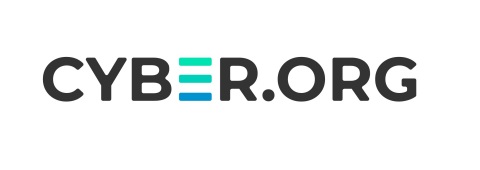CYBER.ORG Releases First National K-12 Cybersecurity Learning Standards
CYBER.ORG Releases First National K-12 Cybersecurity Learning Standards
The standards will help increase student cybersecurity literacy and build a robust pipeline of future cybersecurity talent
BOSSIER CITY, La.--(BUSINESS WIRE)--CYBER.ORG today announced the release of the nation’s first voluntary K-12 cybersecurity learning standards to be used to in schools and districts around the country. As the United States continues to face an onslaught of sophisticated cyberattacks, there are over 464,000 unfilled cybersecurity positions nationwide.
As the first national effort to align cybersecurity learning criteria across all 50 states, the K-12 cybersecurity learning standards aim to build a strong, more diverse talent pipeline to protect U.S. national security and maintain U.S. competitiveness on the world stage, while helping address the cybersecurity workforce shortage. States now have the option to adopt the K-12 cybersecurity learning standards ahead of the 2022-2023 school year.
“The national K-12 cybersecurity learning standards are critical to providing the next generation of students with the skills and knowledge to pursue cybersecurity careers, ultimately helping solve the cybersecurity workforce gap,” said Kevin Nolten, Director of Academic Outreach at CYBER.ORG. “For the first time, educators have a roadmap for uniformly teaching cybersecurity to students in each grade band across the country. We are thankful to all our partners who dedicated their time to making the standards an incredible success and look forward to helping states adopt the standards in the coming year.”
The K-12 cybersecurity learning standards center around three core themes – Computing Systems (CS), Digital Citizenship (DC) and Security (SEC) – all of which represent key fundamentals in cybersecurity education. Each core concept covers a range of pertinent cybersecurity topics, from the Internet of Things (IoT) to Threat Actors.
The first-ever K-12 cybersecurity learning standards will support CYBER.ORG’s mission to address the growing cybersecurity workforce crisis by increasing foundational cybersecurity awareness, access to cybersecurity education and interest in the cybersecurity profession.
“The K-12 cybersecurity learning standards will help align curriculum in different districts and states to better prepare students for future cybersecurity careers,” said Janet Hartkopf, Cyber Program Director at Basha High School in the Chandler Unified School District in Arizona. “Educators now have a clear rubric to guide cybersecurity curriculum and help address the existing gaps in the talent pipeline.”
Since kicking off the initiative in September 2020, CYBER.ORG convened a writing committee of K-12 educators and involved key stakeholders across education, government, and industry to collect input that increased the relevancy and value of the standards. The standards development process was facilitated by McREL International, a nonprofit, nonpartisan education research, development and service organization that helps schools, districts and education agencies improve outcomes for students.
“The national K-12 cybersecurity learning standards will enable greater access to cybersecurity education in classrooms across the country,” said Kirsten Baesler, North Dakota Superintendent of Public Instruction. “These standards will provide students with the same cybersecurity learning opportunities at each grade level and are essential to helping them prepare for the high-demand cybersecurity jobs of the future.”
To review the K-12 cybersecurity learning standards and learn more about the standards initiative, visit: www.cyber.org/standards
About CYBER.ORG
CYBER.ORG, formerly the National Integrated Cyber Education Research Center (NICERC), is a cybersecurity workforce development organization that targets K-12 students with cyber career awareness, curricular resources and teacher professional development. The United States Department of Homeland Security (DHS) supports CYBER.ORG through a grant from the Cybersecurity Infrastructure and Security Agency (CISA) to develop and distribute cybersecurity education content to educators across the country at no cost. Currently, more than 18,000 teachers across all 50 states and three U.S. territories are enrolled in the CYBER.ORG content platform. For more information, please visit http://www.CYBER.ORG.
Contacts
Emily Field, RH Strategic for CYBER.ORG, (202) 292-5047, efield@rhstrategic.com
